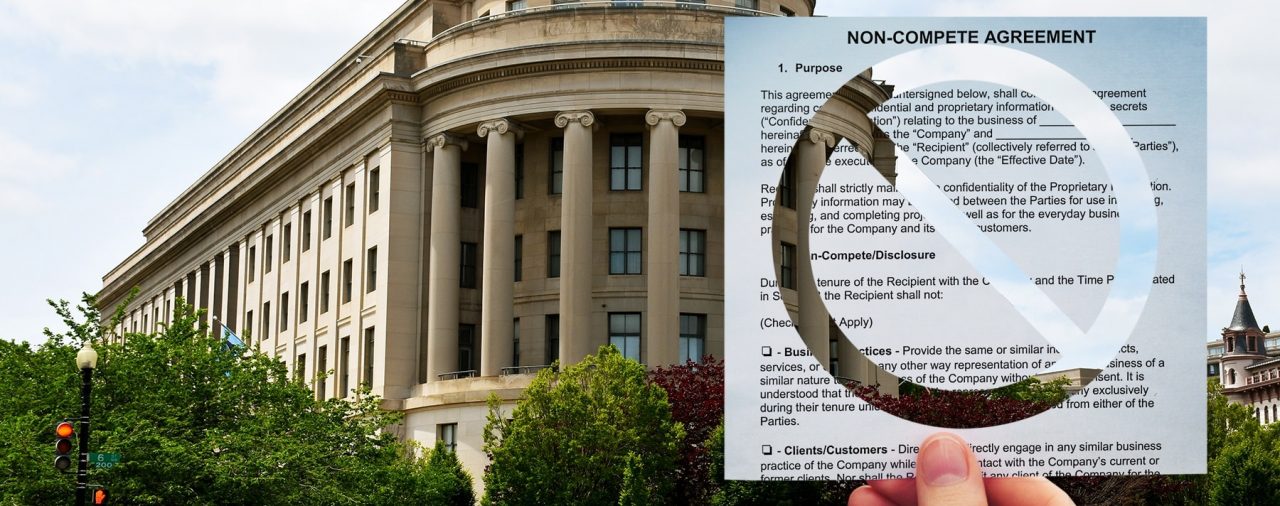Content Highlights
Are you bound by a non-compete agreement? You will be glad to learn that the FTC (Federal Trade Commission) plans to ban non-competes. To learn about the proposed FTC rule, please read our article that follows.
At Gardner Employment Law, we have years of experience in handling non-compete agreements. Read on to discover the FTC’s new proposal and how it may affect your rights.
How Will the FTC’s Ban on Non-Competes Change the Law?
On January 5, 2023, the FTC issued notice of a new regulation which, if approved, will provide that it is an unfair method of competition for an employer to enter into or attempt to enter into a non-compete clause with a worker. The new rule will apply to not only employees, but also independent contractors and unpaid laborers, such as unpaid interns.
The proposal is based on Section 5 of the Federal Trade Commission Act which declares “unfair methods of competition” to be unlawful. The Act directs the FTC “to prevent persons, partnerships, or corporations . . . from using unfair methods of competition in or affecting commerce.” In its Notice, the FTC relied on extensive research starting in the early 2000’s which establishes “that the use of non-compete clauses by employers has negatively affected competition in labor markets, resulting in reduced wages for workers across the labor force.”
As discussed in our previous blog article, “President Biden Moves to Limit Use of Non-Competes,” the protection for workers against non-competes was first introduced by President Biden in July 2021 in an executive order. If enacted, the FTC predicts that this new regulation could increase the number of jobs available to around 30 million Americans and raise incomes by nearly $300 billion annually.
In the new regulation, the FTC’s definition of “non-compete clause” would generally not include other types of restrictive employment covenants such as NDAs (non-disclosure agreements) and client or customer non-solicitation agreements. These covenants do not prevent a worker from seeking or accepting employment with another company after the conclusion of the worker’s employment with the employer. Rather, NDAs and non-solicitation agreements usually protect legitimate business and intellectual property interests of the employer. However, the new rule would cover NDA and non-solicitation covenants where they are so broad in scope that they function as a non-compete clause.
When Will the FTC’s Rule to Ban Non-Competes Take Effect?
It will take months before the FTC decides whether to promulgate a final rule banning non-competes and how it will be worded. The FTC’s notice requests interested parties to file comments regarding the proposed rule either online or by paper within sixty days. During the comment period, an agency may also hold public hearings where people can make statements and submit data. Many agencies are beginning to use webcasts and interactive Internet sessions to broaden the audience attending public meetings on new regulations.
After the comment period closes, an agency may establish a second period for reply comments (comments that respond to prior comments). A reply period is not required by law. The reply comment period enables people to respond to comments that agencies received at the end of comment period, creating more of a public dialog.
At the end of the process, before the rule can be finalized the agency must base its reasoning and conclusions on the rulemaking record which consists of the comments, scientific data, expert opinions, and facts accumulated during the pre‐rule and proposed rule stages. To move forward with a final rule, the agency must conclude that its proposed solution will help accomplish the goals or solve the problems identified. In short, the FTC’s plan to ban non-competes may not take place until next year.
How Will the FTC’s Proposed Rule to Ban Non-Competes Affect Employers?
Employers and other individuals in the business communities argue that healthy competition and innovation is at risk. As explained by SHRM (Society of Human Resource Management) in its article “Feds Push to End Noncompete Agreements,” the rule could hamper efforts to retain good employees and make companies’ intellectual property vulnerable.
Upon the FTC’s approval of the final rule, companies with active non-compete agreements will be required to notify their employees that their non-compete agreements are void. As mentioned above, the FTC may apply the proposed rule to other restrictive clauses if in their application the restrictions prevent employees from changing jobs.
Non-compete clauses currently are governed by the different states’ laws. We explain the Texas statute in “Texas Non-Compete Lawyer.” Some jurisdictions, such as North Dakota, Oklahoma, and California, have already made it illegal to require employees to sign non-compete clauses. Other states impose less stringent restrictions than does Texas. For example, physicians must comply with the Texas non-competition statue, while other states exclude physicians from their non-compete laws. Companies claim that they have different needs for protection in different parts of the country. This new rule would establish a uniform standard: no non-compete clauses anywhere in the nation.
What should you do about your non-compete agreement?
Our goal at Gardner Employment Law is to make sure our clients are informed about any recent developments that could affect their employment. If you would like more information about the FTC’s new rule banning non-competes and what to do during the interim, at Gardner Employment Law we are standing by to help.

